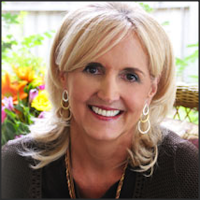Journaling for Awareness and Healing by Dr. Linda Miles
This week’s post comes from Dr. Linda Miles. Dr. Miles has a passion for helping create a better world by teaching Mindfulness practices and compassion for self and others. Her new book is an Amazon best-seller and you can purchase it here: Change Your Story, Change Your Brain.
- Do you find yourself in a funk without knowing the reason?
- Do you want to better understand your moods and their patterns?
- Do you want to experience more mental well-being?
- Do you want to improve your mental and physical health?
Why Journal?
Keeping a journal or personal diary is an amazingly simple tool that supports and enhances self-awareness and mindfulness. Writing about where you are, where you were, and where you want to go allows you to review and track your thoughts and experiences in a tangible, visible form. You begin to observe and recognize what you are doing with your life, and notice that there are areas you may want to change.
Regular journaling can also improve blood pressure, insomnia, mental well-being, and boost the immune system, according to a 10-year research program conducted by James Pennebaker of the University of Texas.
Meet Jane
Jane is a 35-year-old divorced woman with a 5-year-old son. Although her marriage ended two years ago, she still struggles with finding a sense of direction in her personal life. At work and in her parenting, she is focused and goal-directed, yet when her son is with his dad every other week, and she is alone at home, she finds herself in a funk. She often feels fatigued and spends her free time absently watching TV, overeating junk food, or drinking wine.
As part of Jane’s therapy, I suggested that she keep a journal to help her look at patterns in her thoughts and emotions. As a result, she was better able to see how frozen she had been in her personal life after her divorce. By stepping back and writing about her experiences on a daily basis, she became mindful of her inner numbness and inspired to look for ways to find joy and inner contentment. She recently shared, with a laugh, “I did not realize I was such a zombie!” Although it may be painful at times for Jane to write about her feelings of emptiness, doing so helps motivate her toward healing and change.
It’s Your Turn
Mindful journaling is about paying attention. Although some people find it helpful to write pages at the time, this is not necessary. In fact, the method I recommend most is simply answering two straightforward questions:
- What thoughts or feelings were most important to you today?
- What lessons did you learn today?
Here is an example of an entry Jane may have made in her own journal:
- Today I felt sad and lonely.
- I need to plan ahead for time to be with others, exercise, and find meaningful activity.
You may start your journal anytime Below are some helpful tips:
- Decide in advance whether you want to keep your journal entries private or not, though you can change your mind about this at any point.
- Keep your journal, along with a pen or pencil, where you will see it every day — on the kitchen table, your desk, or in your briefcase — as a reminder to keep it up daily.
- You may wish to use different ink colors when writing about certain feelings (e.g., green = growth, blue = sadness, orange = joy, red = anger, etc.). Make sure to include a color key in your journal so that you are consistent.
- Using a pre-formatted book like The 5 Year Journal found at www.levenger.com, is an easy way to keep a journal. You can also use a computer, a blank book, or simply a notebook. Choose one that has enough pages to write a few lines each day for five years.
- Don’t worry about skipping one or more days or even weeks. When you look back at your entries, these gaps will be very telling.
Journal writing is quick and easy, yet so beneficial! In a few brief sentences, in just a few minutes a day, you can reduce stress from unexpressed emotions and open up doors to healing. In addition, re-reading sections regularly allows you to track recurring destructive thoughts and feelings. By identifying trends, triggers, and effective coping strategies, you can take steps toward positive and permanent change for improved mental and physical health.
Meet Dr. Linda Miles
 Dr. Miles has appeared on national television, radio and in magazines such as Woman’s World, Parents and Entrepreneu
Dr. Miles has appeared on national television, radio and in magazines such as Woman’s World, Parents and Entrepreneu
Dr. Miles has won numerous professional awards such as “Outstanding Educator in Business and Industry,” from Florida State University and “Outstanding Contributions to Knowledge in the Practice of Marriage and Family Therapy” by TAMFT.
She serves in the National Advisory Board of Access Technologies Social Simentor Model for Intervention with Autism and was appointed by the President of the Florida Senate to The Florida Commission on Support Initiatives for Marriage and Family.
She is listed in Who’s Who Among American Women, (Marquis,1993). Dr. Miles has a passion for helping create a better world through loving relationships.
